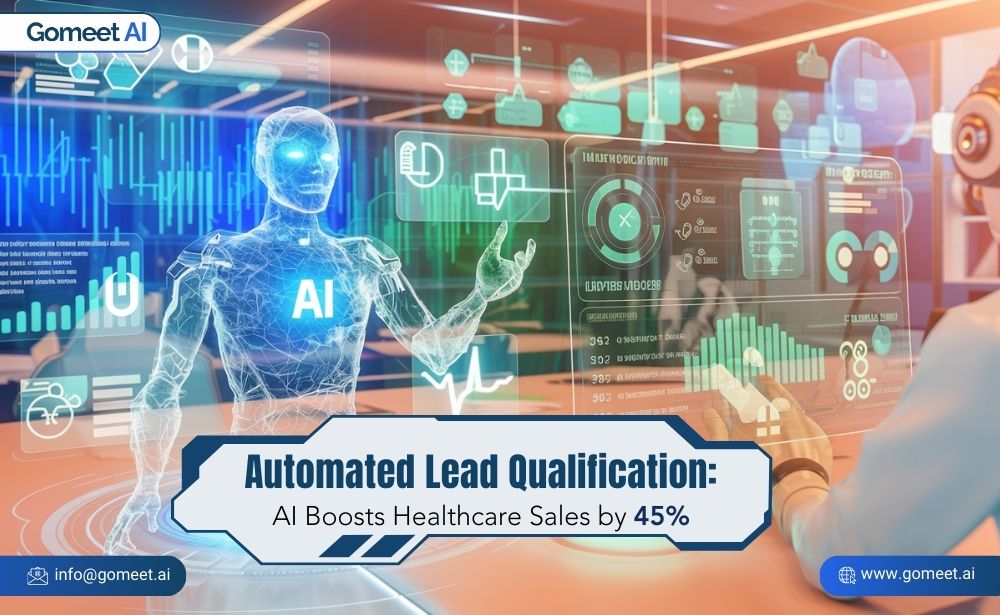Navigating the healthcare industry’s B2B sales landscape is no easy feat. The buyer’s journey is intricate, involving multiple stakeholders, strict regulatory requirements, and high stakes. For businesses targeting this sector, finding the right decision-makers at the right time can feel like searching for a needle in a haystack.
Here’s the problem: traditional lead qualification methods are time-intensive, prone to human error, and incapable of keeping up with the fast-paced demands of modern healthcare. Studies show that 60% of B2B businesses struggle with inefficient lead management, resulting in missed opportunities and lost revenue.
Enter automated lead qualification—a game-changing innovation powered by AI. By leveraging tools like AI sales assistants, healthcare businesses can streamline their sales processes, prioritize high-value leads, and close deals faster. In this blog, we’ll dive into how AI is transforming B2B healthcare sales and why adopting this technology is crucial for staying competitive.
Understanding Automated Lead Qualification
What is Automated Lead Qualification?
Automated lead qualification is the process of using AI tools to identify, score, and prioritize leads. Unlike manual methods, AI analyzes vast datasets to predict which prospects are most likely to convert. This ensures that sales teams focus their time and energy on high-potential leads, leaving no room for guesswork.
Why It’s Crucial in Healthcare
The healthcare industry presents unique challenges for B2B sales:
- Complex Decision-Making: Purchasing decisions often involve multiple stakeholders, including physicians, administrators, and procurement officers.
- Regulatory Constraints: Compliance with laws like HIPAA requires precise targeting and careful handling of sensitive data.
- High Stakes: Healthcare deals often involve large contracts, making efficient lead qualification critical to success.
Statistic: Research by Gartner shows that 68% of B2B buyers expect personalized sales approaches, which automated lead qualification excels at delivering.
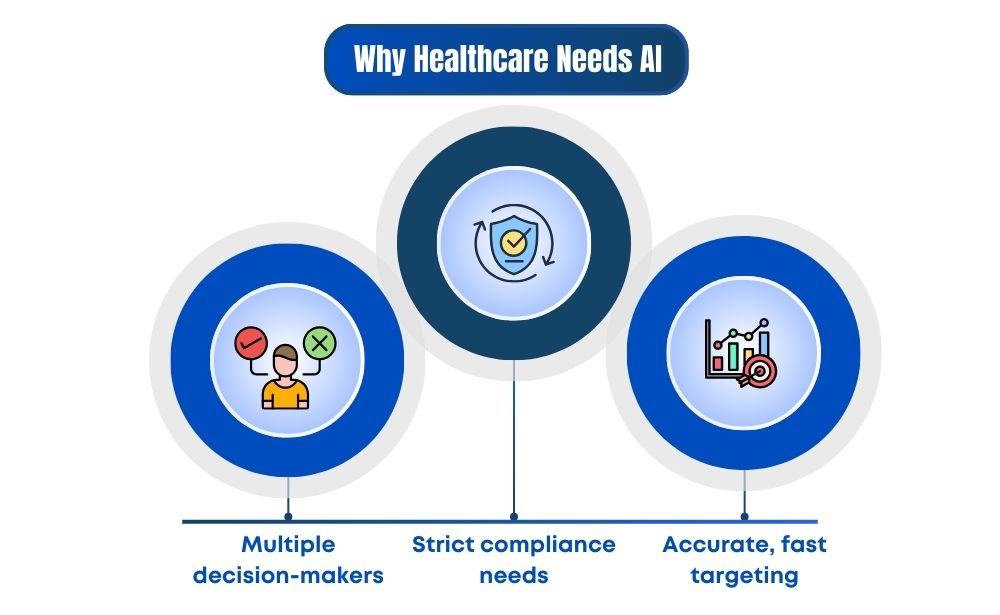
Key Features of Automated Lead Qualification
- Predictive Analytics: Uses historical data to forecast which leads are most likely to convert.
- Real-Time Data Processing: Qualifies leads instantly based on up-to-date interactions and behaviors.
- CRM Integration: Seamlessly connects with existing tools, ensuring a smooth sales workflow.
The Role of AI in Healthcare B2B Sales
AI Sales Assistant for Healthcare
AI sales assistants act as virtual team members, analyzing historical data and real-time behaviors to identify high-value leads. For example, an AI tool might track a prospect’s engagement with your website and score them based on their actions, such as downloading a case study or attending a webinar.
Sales Lead Automation in Action
Routine tasks like follow-ups, nurturing, and appointment scheduling can now be handled by AI. This allows sales teams to focus on building relationships and closing deals instead of managing repetitive tasks.
AI B2B Sales Transformation
AI tools adapt dynamically to market trends. If a new regulation impacts healthcare purchasing behavior, AI systems can adjust their lead-scoring models accordingly, ensuring that your sales strategies remain effective.
Statistic: Businesses using AI-driven sales tools report a 50% improvement in lead conversion rates, according to a 2023 Salesforce study.
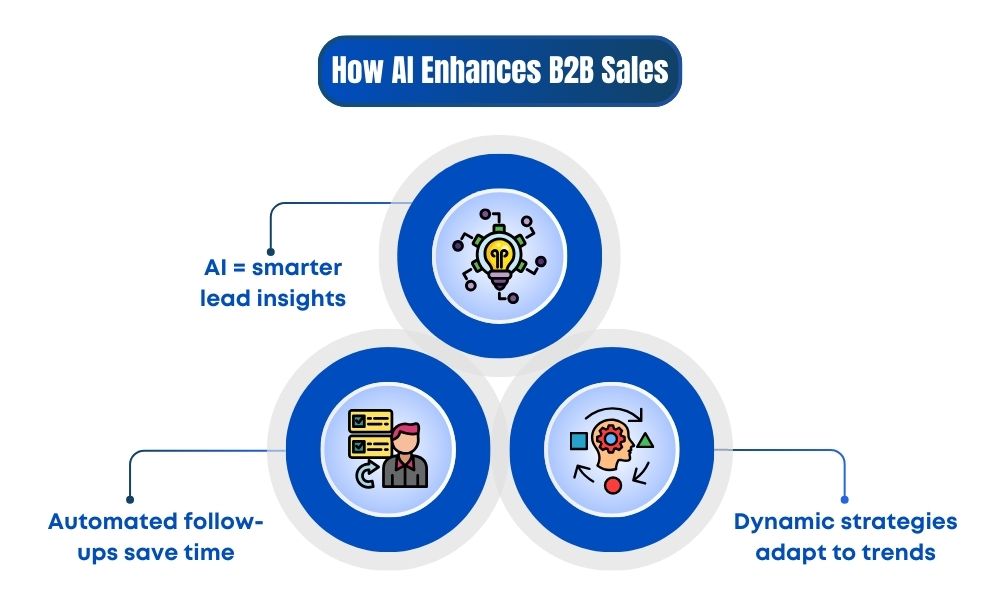
Benefits of AI-Driven Lead Qualification
Time-Saving
AI automates up to 70% of the lead qualification process, giving sales teams more time to focus on high-value activities.
Increased Accuracy
By eliminating human bias and error, AI ensures that only the most relevant leads are prioritized. This accuracy is especially important in the highly regulated healthcare sector.
Cost Efficiency
AI tools reduce the costs associated with manual lead qualification, such as the time spent on cold leads or inefficient processes.
Scalability
AI can handle massive datasets and qualify thousands of leads simultaneously, making it ideal for businesses targeting healthcare organizations of all sizes.
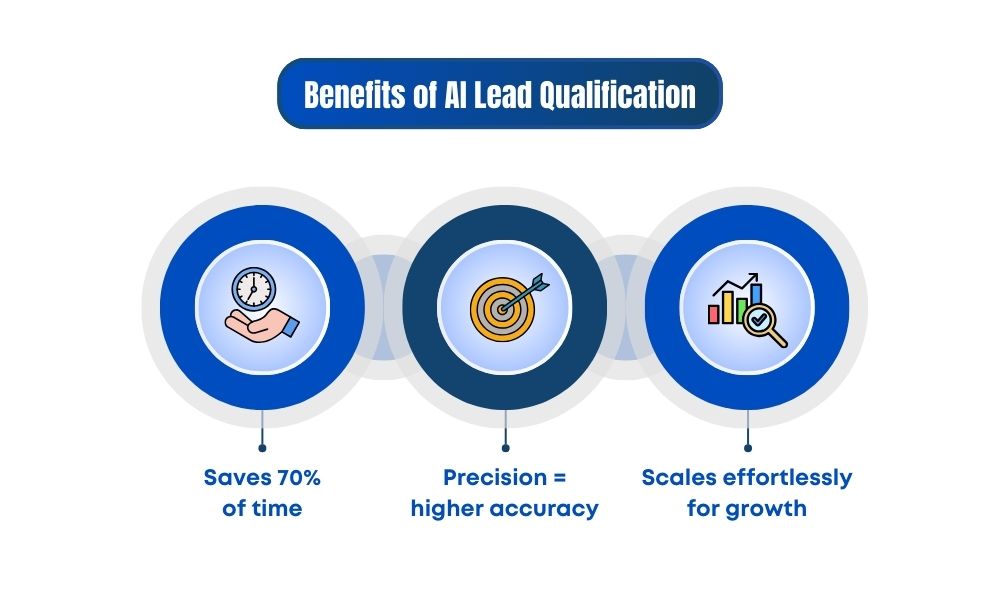
Key Features of Automated Lead Qualification Tools
Lead Scoring Models
AI assigns scores to leads based on data points like engagement levels, company size, and past interactions.
Data Enrichment
Missing data, such as job titles or company details, is automatically filled in by AI tools, providing a complete picture of each lead.
Behavioral Insights
AI tracks prospect behavior, such as website visits or email opens, to provide actionable insights for personalized outreach.
Real-Time Alerts
Sales teams are notified instantly when a lead shows readiness to engage, ensuring timely follow-ups.
Example: If a healthcare administrator downloads your product brochure, the AI tool alerts your sales team to act immediately.
Real-Life Applications in Healthcare B2B Sales
Case Study 1: Increased Conversions
A healthcare supplier adopted an AI sales assistant and achieved a 45% increase in lead conversions within six months. The tool helped identify and prioritize high-potential leads, resulting in faster deal closures.
Case Study 2: Shortened Sales Cycles
A B2B healthcare software company reduced lead qualification time by 50% using sales lead automation tools. The AI system flagged leads ready for immediate follow-up, speeding up the sales process.
Lessons Learned
- Data-Driven Decisions: Using AI insights ensures every action is backed by accurate data.
- Timing is Everything: Personalization and timely engagement are key to successful conversions.
How to Implement Automated Lead Qualification for Healthcare
Step 1: Evaluate Your Needs
Identify pain points in your current lead qualification process, such as time delays or low conversion rates.
Step 2: Choose the Right AI Tool
Look for features like AI sales assistant capabilities, CRM integration, and data enrichment.
Step 3: Train Your Team
Ensure that your sales team understands how to use AI-driven insights to their advantage.
Step 4: Monitor and Optimize
Use analytics to measure the tool’s performance and refine your lead qualification strategies.
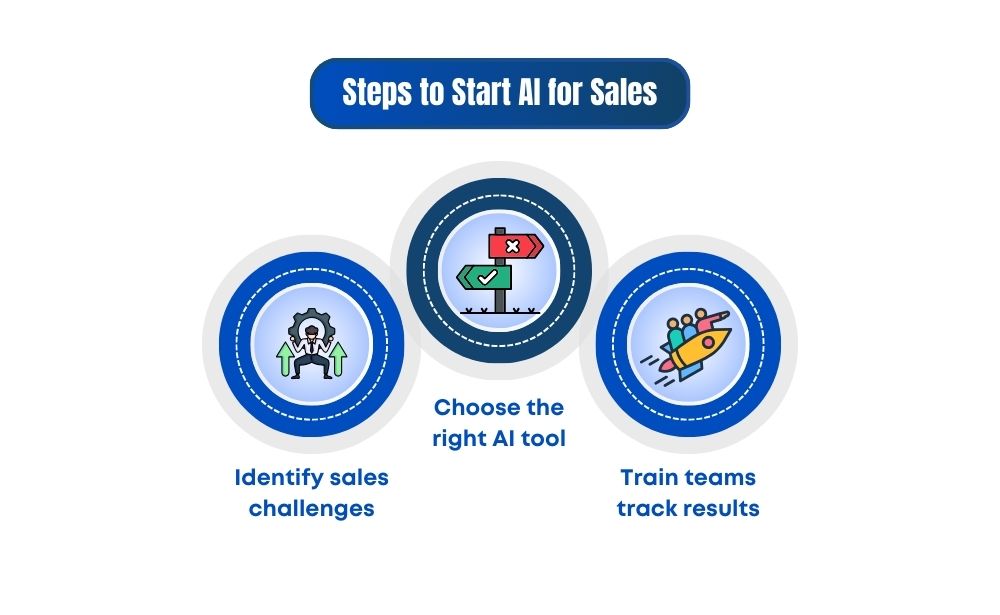
Conclusion
The healthcare industry’s B2B sales challenges demand smarter solutions, and automated lead qualification leads the charge. By saving time, improving accuracy, and enabling scalability, AI tools like sales lead automation– Gomeet AI are revolutionizing how healthcare businesses identify and convert leads.
For healthcare companies looking to stay ahead in a competitive market, now is the time to embrace AI B2B sales tools. With powerful features like lead scoring, behavioral insights, and real-time alerts, these tools ensure that no opportunity is missed.

